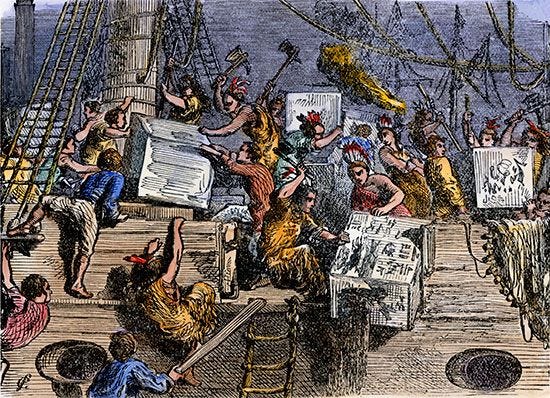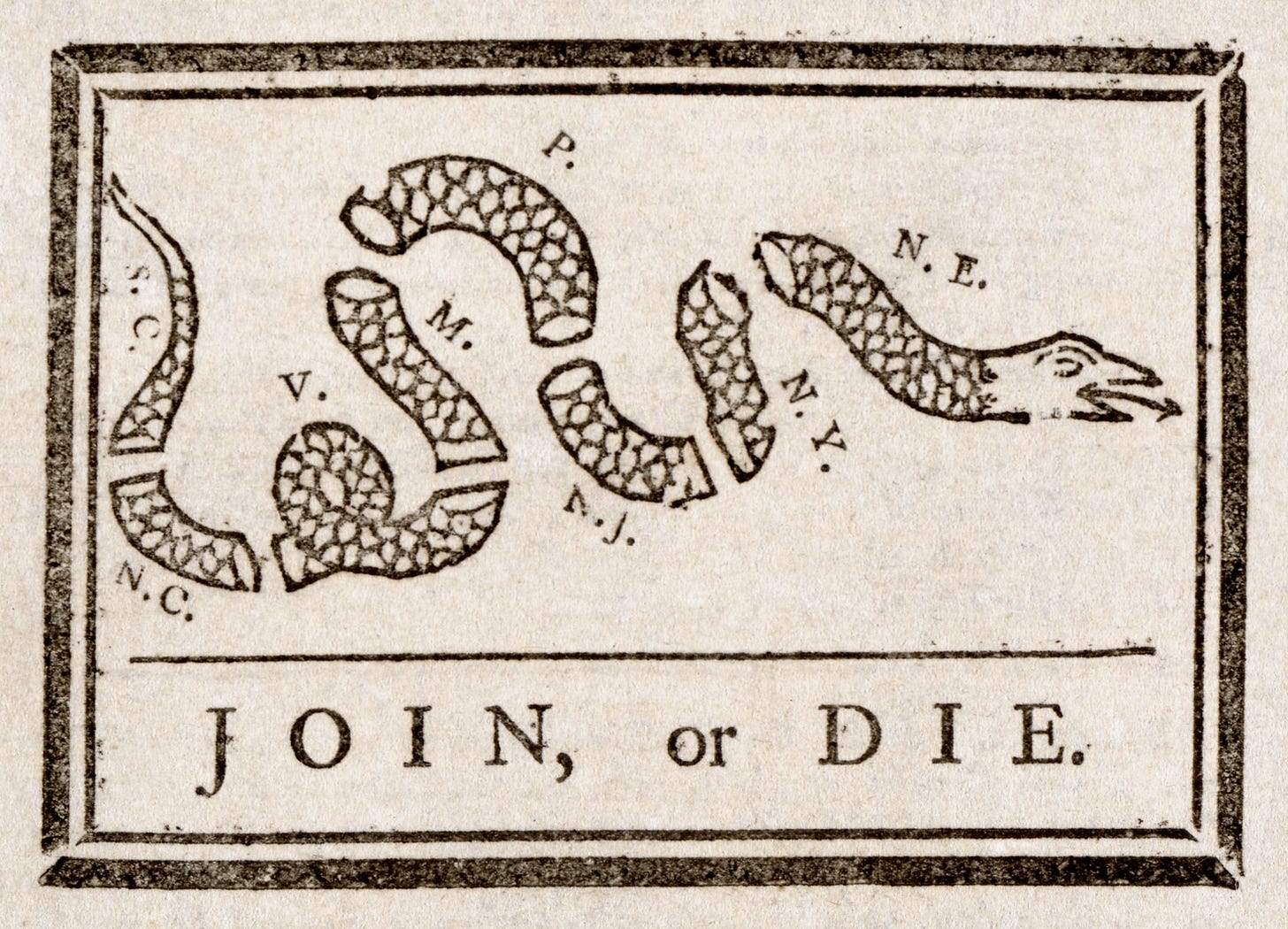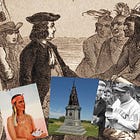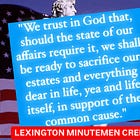Here's how Native Americans made the USA - and why cancel culture doesn't want you to know (Part 1)
You won't believe the shocking events cancel culture stole from our foundational history

(Note: This Saturday, April 19, 2025, marks the 250th anniversary of the Battles of Lexington & Concord that ignited the War of American Independence. We are diving this week into the many ways woke cancel culture has erased the foundational history of American independence. You’ll be shocked!)
The United States of America is more than just a product of the European Enlightenment distilled through the brilliance of the Founding Fathers.
These constitutional cocktail-makers also blended in real-life Native concepts of governance and individual liberty practiced in North America for centuries but unknown in Europe.
Indigenous influences, it turns out, proved essential to the Declaration of Independence, the U.S. Constitution, American citizenship, US military theory, even the design and symbolism of the Great Seal of the United States. And so much more.

The anti-American Marxists in academia, media and pop culture don’t want you to know the real history, however.
America’s true multiculturalism conflicts with their far-left Howard Zinn-style simple-minded people’s history of the United States: evil white settlers enslaved, victimized and slaughtered helpless indigenous “people of color” to create the United States.
Therefore, the US is an illegitimate racist colonizing power run by greedy white capitalists. It can only be saved when it’s taken over by kind-hearted big-government socialists.
These unrepentant Zinners enlisted a powerful political action committee, known as cancel culture, to perpetuate this fictional victimhood narrative. They have been brutally effective. They’ve seeded cultural self-loathing among millions of Americans and stoked divisions among us - just as they intended to do.
The truth, however, never goes out of style.
Here are just some of the incredible multicultural stories that have been cancelled from America’s foundational history … with more to come in the days ahead.
THREE WAYS NATIVE AMERICANS MADE THE USA (Part 1)
1 - Iroquois Great Law of Peace shaped US Constittution
Never heard of the Iroquois Confederation and its Great Law of Peace? The Founding Fathers knew all about this stuff. So, too, did earlier generations of Americans. They stopped teaching it by the time we were in school, though.
The Great Law of Peace united long-time warring Mohawk, Oneida, Onondaga, Cayuga and Seneca nations in a federal system of governance, centered around upstate New York, as early as the 1100s.
The Haudenosaunee, or Iroquois Confederacy, as it is known, added a sixth tribe, the Tuscarora, in 1712. The Founding Fathers typically referred to them as the Six Nations.
Their Great Law of Peace contained many of the foundational elements of the U.S. Constitution. Among them: political autonomy for each member state, government by the consent of the governed, separation of powers, three branches of government, a domestic chief executive who served as military commander in wartime, articles of impeachment, and rules of citizenship for foreigners.
John Adams, Ben Franklin, John Hancock, George Washington, and other foundational figures, were all familiar with the Great Law of Peace. They personally knew Iroquois leaders and recognized Iroquois influence.
The Founding Fathers not only recognized the Six Nations, they invited their wisdom into the hard work of nation building.
2 - Iroquois delegates attended the Second Continental Congress
Say what? Yes. That’s right. American Indians participated in the Second Continental Congress. Seems like a lesson in multiculturalism we might want American kids to know to about.
Congress invited the Iroquois to Philadelphia in the weeks before declaring independence. A delegation of 24 Iroquois spent 20 days meeting with President John Hancock & Co. They left June 11, the same day a committee was elected to draft the Declaration of Independence. What a coincidence!
All of the drama is recorded right there in the congressional meeting minutes.
“The Indians begged leave to give a name to the president [Hancock],” states the June 11 entry of the congressional record. “The same being granted, the Onondaga chief gave the president the name of Karanduawn, or the Great Tree, by which name he informed him the president will be known among the Six Nations.”
We later learn that congress reimbursed Andrew M’Nair £45 “for provisions etc. for the 24 Indians, while at the state house, which was 20 days;” while Michael Clarke was paid £10 “for liquor for the above Indians.”
Dr. Bond received £3 for “medicines and attendance for three Indians.” The biggest cost was the £412 paid to Benjamin Armitage “for boarding and lodging Thomas Folmer, the Indian interpreter, twenty days.”
Sounds like the Iroquois spent a lot of time chatting with Adams, Jefferson and the Colonial Boyz.
Let this fact sink in again: Native Americans participated in the Second Continental Congress, the body that shattered the entire known world order when it issued a Declaration of Independence just three weeks after wrapping up biz with the Iroquois!
This chain of events should be common knowledge among all Americans. It’s a national tragedy that it’s not.
3. Natives preached power of union to colonial leaders

Iroquois sachem Canassateegof lectured colonial governors on the benefits of union in 1744, at the invite of Ben Franklin.
“Our wise forefathers established Union and Amity between the Five Nations,” the sachem said, according to an account printed by Franklin and re-published by the Philadelphia Historical Society in 1938.
“This has made us formidable … We are a powerful Confederacy; and by your observing the same methods our wise forefathers have taken, you will acquire such Strength and power.”
The Founding Fathers later used the same Iroquois arguments to sell colonists, and each other, on the promise of a powerful new nation of unified colonies. A united states of America.











Important history. Would also suggest looking into the efforts made by Washington, Knox, and Jefferson to ensure: (a) US upheld our treaties with the Native nations; and (b) took real steps toward integrating them into American society. Samuel Kirkland's work with the Oneidas and Benjamin Hawkins' efforts with the Creeks are two prominent examples.